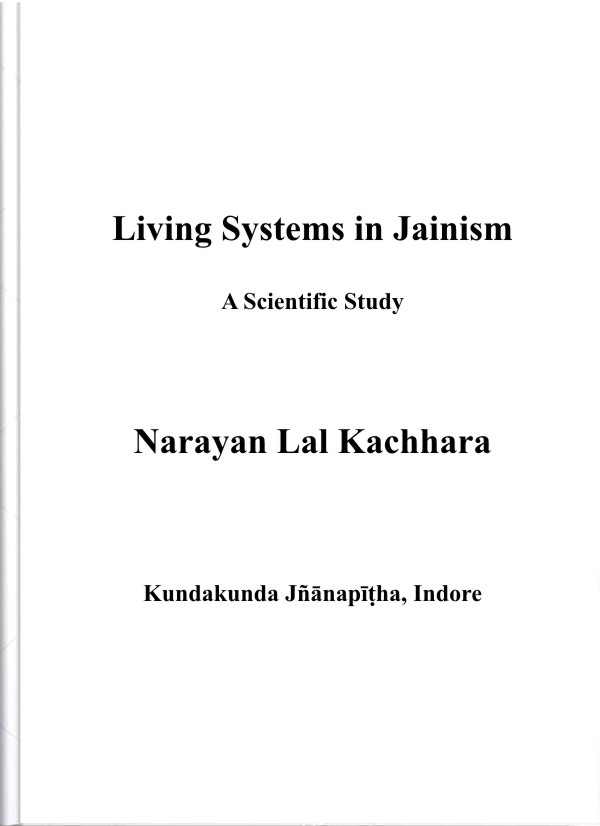The philosophy of Mahavira advocates the doctrine of existence of the soul. There are three consequences of this doctrine: (i) the doctrine of free will (purusarthavada); (ii) the doctrine of karma; and (iii) the doctrine of rebirth.
The doctrine of free will, self-command, or self-governing, rejects the doctrine of God as the Creator, preserver and destroyer of the universe. These doctrines are opposed to each other and one will be futile in the presence of the other. It is not possible to explain the changes that are taking place in the world of living beings based on the doctrine of God as the author of creation. This is why Lord Mahavira founded the doctrine of free will. This is the doctrine of the soul as the maker or unmaker of itself. Each soul exerts its own energy for its action and enjoys the fruits thereof.
An apparent contradiction between the doctrine of free will and the doctrine of karma may be suspected. If our karma is responsible for the events that take place in our lives, then free will is useless; if free will is responsible for worldly events, then karma will be a futile postulate. This contradiction has been avoided by Lord Mahavira. His philosophy defines karma as the result of free will which is not controlled by karma. Free will is the root cause of worldly events. Karma is only a secondary cause because it can be changed by the power of free will.
Free will also has its limits. It is not omnipotent. There are occasions where free will is impotent. The truth is that free will and karma are interdependent and relative. Karma is not omnipotent since change can be brought about in it by the power of free will. Free will is also not omnipotent because it is powerless to resist the retributions of nikachita karma. The outcome of this is that sometimes karma is more powerful than free will and sometimes the reverse is true.
There are five factors which determine our destiny:
- The power of the soul (Swabhava). The power of the soul is immense, and no amount of karma can completely obscure it. The power of the soul is so great that if a person is determined to proceed on the path to emancipation, the karma will go into a silent mode. With powerful action, the soul can destroy the karmas and pave the way for liberation.
- Circumstances. We have no control over our circumstances, and we have to adjust accordingly. Karma has no role in choosing or meeting with a spouse, the children born to a couple, meeting with or departing from loved ones, loss or profit in business, etc. Similarly, natural calamities like floods, droughts, storms, earthquakes, etc. have nothing to do with karma. Government policies and rules are based on considerations other than karma. In essence, the destruction and production of anything other than our self is governed by its own causes and is not connected with our karma.
- Time. Time is an independent operator. It affects everything in the universe including our lives. Every event takes time to happen. Some events are time-dependent and bear no relationship to our karma.
- Karma. Karma is the most important operator in our destiny. It plays the major role in deciding the course of our life. The effects of karma can be moderated by acting as a neutral observer of events, and through penance and meditation.
- Free Will and Soul Initiative (Purushartha). By taking the proper initiative, a person can change the course of his life which otherwise would be guided by karma. Right initiative provides a means to shape our destiny according to our will. Strong determination, courage, untiring efforts, self-confidence, energy and faith are needed. You can be the architect of your own destiny by inculcating such virtues. The bonds of karma can be changed through proper initiatives. It is possible to have an early rise of karma, in which the intensity of the action of the karma will be reduced; and the nature of karma can also be changed, in some cases, by taking positive initiatives. The choice is with you. All great men in the world have fought with their karma and won. Greatness is not a gift; it is earned by hard work, perseverance, dedication and determination. This is the way to defeat karma and to shape the future. In the absence of proper initiative, karma is the master of your destiny.
Karmas bear fruit in later life or in later births. Auspicious activities produce pleasure, peace and happiness. Inauspicious activities produce pain, misery and unhappiness. "You reap what you sow" is absolutely true. Your present state is the result of your past karma. What you do in this life shall determine your future (in this life or the next). You shape your future. While you enjoy the fruition or rising of karma, you also bond new karma due to the activities you perform. Generally, as the karma balance is reduced through spiritual efforts, life ismanifested with more intelligence, powers, happiness and peace. On elimination of psychical karma, one becomes Omniscient.
 Dr. N.L. Kachhara
Dr. N.L. Kachhara
